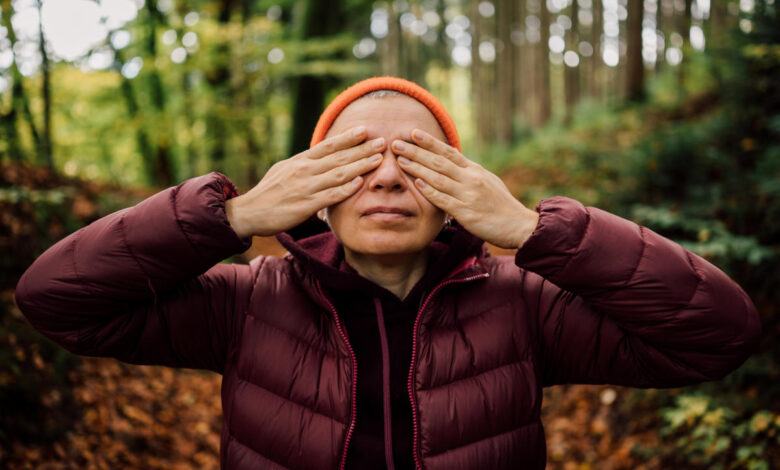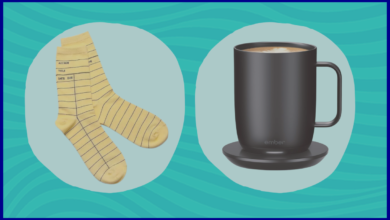Experiencing Dry, Itchy, or Infected Eyes? The Fall Weather Might Be the Culprit.

Ah, the delights of autumn! Crisp air, dazzling foliage, and that inviting harvest-time aura that wraps around us like a comforting blanket. Yet, for many, the season’s wonders come with an itch, not from scratchy sweaters, but from the relentless discomfort of irritated eyes. As the sweltering heat of summer recedes into memory, the cooler climes of fall usher in a different set of challenges, particularly for your peepers. With allergies flaring and little ones returning home, possibly carrying unwelcome germs, this time of year can feel like an onslaught of eye woes.
So, what’s brewing behind those bothersome symptoms? Experts in the field have some insights into preserving your ocular well-being.
Fall weather is taking a toll
Typically, autumn rolls in with lower humidity than summer, as cooler air simply can’t hold as much moisture. But turn on the heating system as cold days loom, and you’ll find indoor humidity plummeting even further. Alas, it’s not just your skin that groans under the strain of this aridity—our eyes bear the brunt as well. Dr. Thierry Hufnagel, an ophthalmologist, elucidates that this moisture deficiency accelerates tear evaporation, resulting in discomfort, irritation, and even blurred vision.
And it doesn’t stop there! Dr. Diane Hilal-Campo, another expert in the field, points out that transitioning temperatures can manipulate air pressure, which amplifies wind currents. The result? Your eyes become parched as moisture is whisked away, while dirt and debris are hurled into the mix, intensifying irritation or scratching the delicate surface of the eye.
So, how do we combat these dry eye dilemmas? Hufnagel recommends upping your water intake, utilizing a humidifier, and perhaps reaching for some artificial tears—those trusty eye drops to keep your vision clear and comfort intact.
Additionally, Hilal-Campo advises donning glasses or sunglasses, along with hats and hooded jackets, to form a protective barrier against the hazardous elements that accompany windy days. If an irritant finds its way into your eye, a good rinse with saline solution can work wonders. “Discomfort should ease within a few hours,” she reassures, but if the issue persists or you can’t dislodge the intruder, don’t hesitate to seek professional help.
Seasonal allergies are acting up
As we embrace the season, it’s inevitable that mold spores, dust mites, and ragweed pollen begin their aggressive assault, bringing forth a cacophony of itching, redness, and discomfort. According to Hufnagel, when pollen counts soar, staying indoors may be your best bet. However, it’s virtually impossible to shield yourself from allergens completely.
“Restricting your exposure to these irritants is paramount, yet hardly feasible,” Hilal-Campo concurs. “Over-the-counter antihistamines can offer relief, and regular saline rinsing plays a crucial role in your comfort.”
And here’s a pro tip: consider swapping your contact lenses for glasses during these pollen-heavy months. Hilal-Campo warns that contacts can readily attract particles, while glasses provide a more effective shield.
Kids are back in school — and bringing home germs
Let’s face it: children are notorious for their lack of diligence when it comes to hygiene. With the school year underway, they all too easily touch a contaminated surface, rub their eyes, and inadvertently welcome infections that threaten to spread through the household.
Among the various eye ailments children might bring home, conjunctivitis (a.k.a. pink eye) stands out, often manifesting as red, itchy eyes accompanied by discharge. They may also encounter a stye, an annoying bump on the eyelid, or even blepharitis, leading to sore, crusty eyelids—each spawned by pesky bacteria or virulent viruses.
While not strictly eye infections, ailments like staph and strep infections could lead to bacterial conjunctivitis and eyelid inflammation. In dire cases, secondary infections may imperil delicate eye tissues.
If an eye infection is suspected, swift medical attention is essential. And let’s not overlook the vital practice of hygiene—frequent hand washing, avoiding eye contact, and refraining from sharing towels or personal items are imperative to keep those pesky infections at bay.




